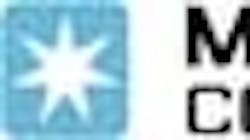Maersk urges enforcement of EU rules for insulation foam in reefer containers
Maersk Container Industry (MCI) is calling for tougher enforcement of European environmental legislation designed to protect the Earth’s ozone layer and help prevent climate change.
“We urge the European Commission to ensure enforcement of existing EU (European Union) legislation regarding insulation foam in reefer containers,” said Peter K Nymand, chief executive officer for MCI. “This would benefit the environment, and it would help European innovation and environmental investments pay off.”
Current EU legislation bans the “import” or “placing on the market” of reefer containers with significant potential to damage the climate and ozone layer. But thousands of such containers nevertheless circulate in Europe’s internal market on virtually the same market conditions as more environmentally friendly reefers.
Supotec, which was developed and patented by MCI in 2002, does not damage the ozone layer, nor does it cause significant climate change, according to the company. As a result, customers and the World Wildlife Foundation (WWF) commend Supotec for being an environmental step forward.
“This is environmental precaution. It is positive when enterprises, in this case Maersk Container Industry, move ahead of the legislation by developing products and production methods, which in turn make it possible for legislators to demand more from the rest of the industry,” said John Nordbo, head of the Conservation Department at WWF, Denmark.
In MCI’s opinion, EU regulation (EC) No 1005/2009 (formerly 2037/2000) was made with good intentions to prevent damage to the Earth’s climate and ozone layer. Yet in reality, thousands of old reefer containers operate in a legal gray zone in Europe because the EU Commission gives a grace period if the containers are not “placed on the market” permanently.
Therefore, MCI’s competitors, which for the most part use HCFC141b-gas in their foam production, have so far not had to make the same environmental investment as MCI did with Supotec in 2002. This neither benefits European innovation nor the climate, says MCI.
Each new reefer container from MCI prevents almost 27 tonnes of CO2 (carbon dioxide) emissions compared with HCFC141b reefers. As of January 1, 2013, the total Supotec production had offset CO2 emissions equal to what 441,000 Danish citizens emit in one year.
MCI is the container manufacturing arm of the A P Moller-Maersk Group. MCI’s reefer production will increase when a new $170 million reefer factory in Chile starts production as scheduled in December 2013.
Access www.mcicontainers.com for further information.
